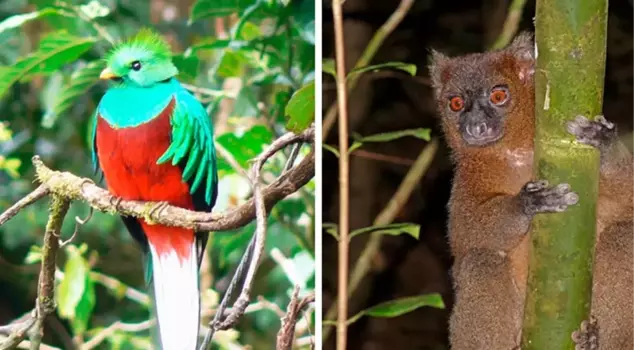
17.09.2024 12:40
More than 3,000 species worldwide are at risk of extinction due to natural disasters. Most of these species live on vulnerable islands that are prone to earthquakes, hurricanes, or volcanic eruptions. Researchers are recommending urgent conservation measures to be taken.
Natural disasters not only cause damage to settlements, but also result in significant destruction in areas outside of these. These destructions ring alarm bells for 3,000 species, including mammals, birds, reptiles, and amphibians, that are particularly affected by these devastations.
A study conducted in Brazil indicated that natural disasters such as earthquakes, hurricanes, tsunamis, and volcanic eruptions put more than 3,000 terrestrial vertebrate species at risk of extinction.
ANIMAL HABITATS ARE NARROWING DOWN
Researchers examined amphibians, birds, mammals, and reptile species that have a maximum population of 1,100 mature individuals or live in an area smaller than 2,500 square kilometers.
The study suggests that species face the risk of extinction if their habitats overlap with the regions where these dangerous natural events occur.
It was found that globally, 8,813 species have a very small population and limited habitat.
Estimates show that 42% (3,722) of these species are found in areas where one or more dangerous natural events have occurred in the last 50 years.
THE GREATEST RISK IS ON ISLANDS
70% of species affected by natural disasters live on islands. Worldwide, 34% of these species are found in the Neotropical biogeographic region, which stretches from southern Mexico to northern Argentina.
Researchers suggest measures such as creating ecological corridors, captive breeding, and relocating populations to safe areas to protect endangered species.
Conservation of these species is of great importance for the sustainability of biodiversity.